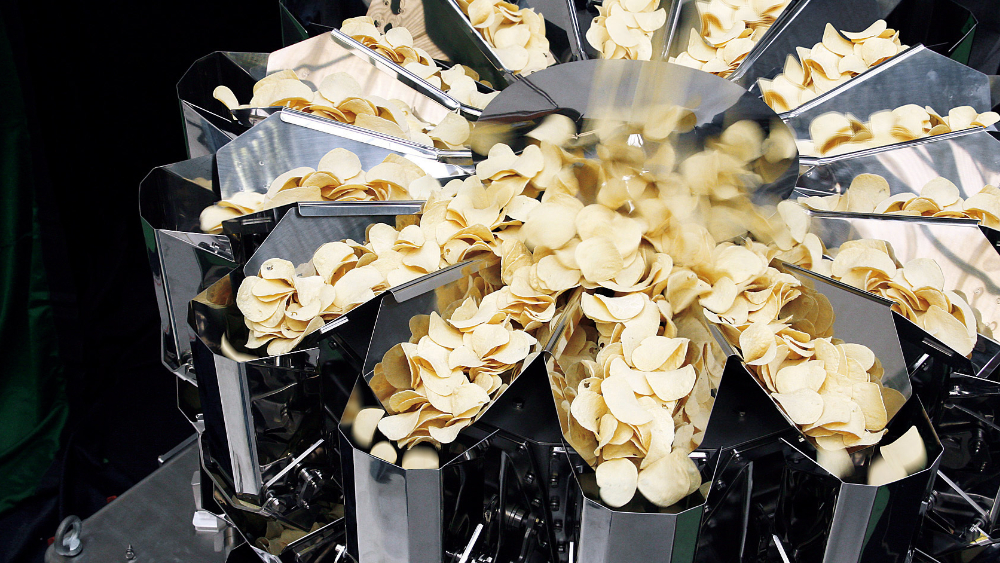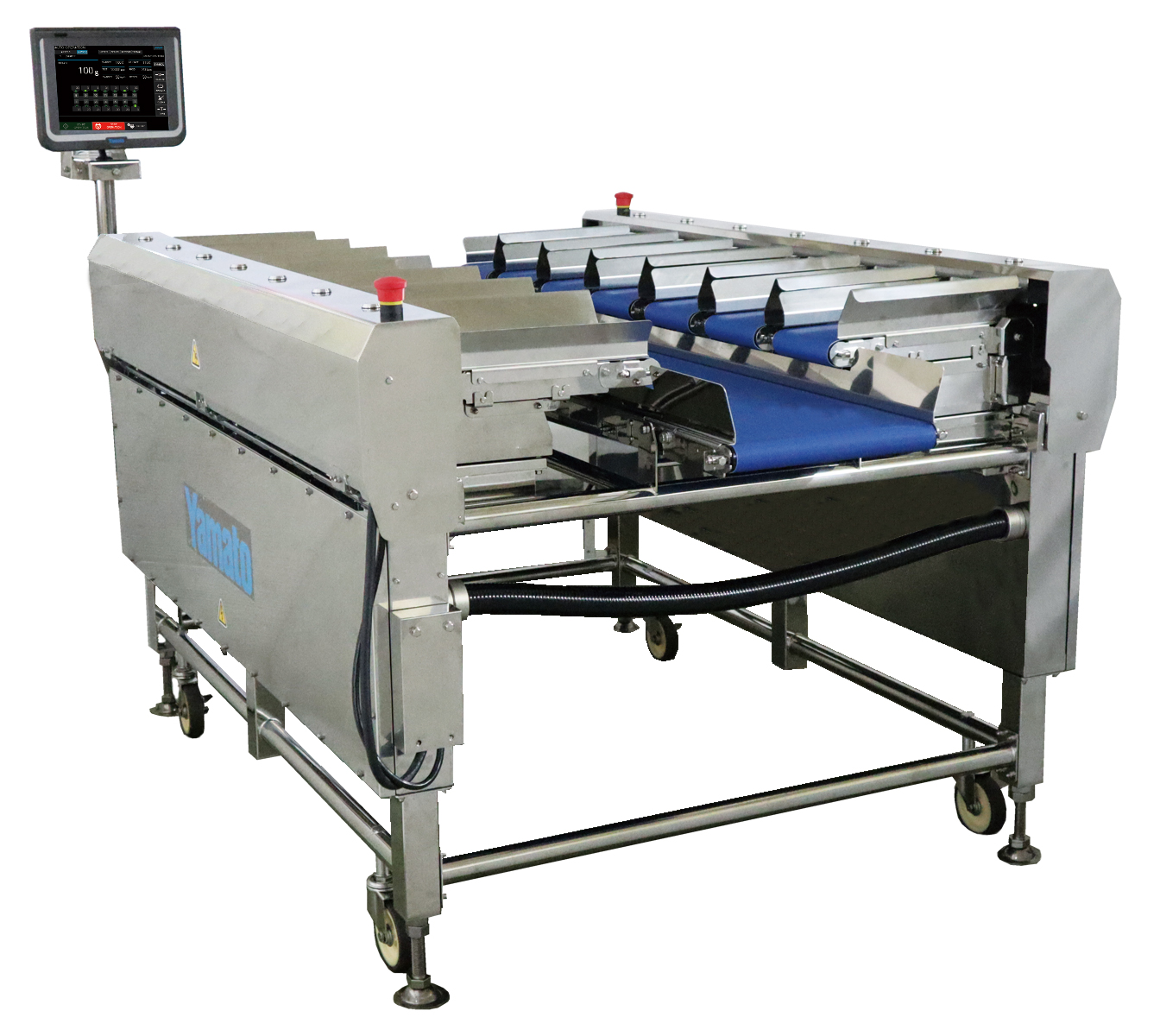How automation can assist your production line
Food manufacturers are under relentless pressure to keep productivity high and costs low, while meeting the exacting requirements of their supermarket customers and consumers who want better quality products as cheaply as possible.
The Food and Drink Federation estimates that British manufacturers will need around 140,000 British minimum wage workers by 2024. Even if they can fill these positions, there is the daunting prospect of spiralling staff costs due to minimum wage legislation, not to mention the need for training.
This is where automation may help.

This blog will look at what’s happening in the food manufacturing industry now and how we expect automation to play an increasingly important role. We will explain how automation could revolutionise the food sector and your production facilities.
- What is automation in food manufacturing?
- Where are we now?
- The barriers to automation
- The opportunity
- Future-proofing
What is automation in food manufacturing?
Automation in food manufacturing is inevitable as plants become increasingly digitised. It involves introducing machines capable of doing all manner of jobs from weighing, inspecting and providing real-time data. Automation enables increased productivity and reduced costs, and food manufacturers accept it as a vital next step that they must take.
Already, there is increased recognition in the industry of the importance of collecting, utilising and analysing production data and analytics. This has led to the increased take-up of semi-automatic weighing machines, for instance, that provide real-time data.
These machines must be highly versatile, able to handle a vast range of applications hygienically and accurately. Yamato Scale recently launched its TSDN3, which is especially well-suited for processing wet items such as meat, poultry and fish – and delicate items such as fruit and vegetables.
Manufacturers are increasingly aware of the advantages of automation that allows data capture to see what is happening on all parts of the production line and make changes as required, without having to shut down the line. Manufacturers that switch to automating the weighing process should see a total return on their investment within six to 12 months.
Then there’s the use of wireless technologies such as sensor networks that can collect and aggregate data and communicate with electronic devices, such as PCs, PDAs and laptops through which data can be transmitted to any network. This means the data can even be accessed remotely.
With food safety continuing to be a pressing issue in the food industry globally, wireless sensor networks can be used to detect contaminants in the food supply chain.
Another area of automation involves monitoring the processing machines via the installation of AI-driven prognostic algorithms to drive preventive maintenance strategies, reduce the chances of prolonged downtime, and keep down overall maintenance costs.
Where are we now?
The food manufacturing sector has lagged other industrial sectors when it comes to automation. One oft-cited reason is that production changes must comply with complex and continuously changing international standards for good practice set by organisations such as the Food Standards Agency, a raft of EU food safety law and the BRC’s Global Standard for Food Safety, not to mention supermarket and sector guidelines.
This has led to something of a conservative attitude among food manufacturers. However, there are signs that attitudes to automation are beginning to change.

Purchasing managers are becoming more aware of the returns on investment that automation can bring, and there is an increasing feeling across the industry that this type of expenditure is justifiable.
Whether it’s a case of retrofitting older-generation machinery or inefficient motors to be compliant with the EU’s Ecodesign Directive or investing in the latest generation of semi-automatic machines, almost every recent investment in automation equipment has energy-efficiency and cost-reducing reasons behind it.
Then there’s batch automation, which means manufacturers can be very precise regarding ingredients and can easily swap to making other things on the same production line, rather than being restricted to having to continuously produce one item per line.
The introduction of batch automation provides greater control over the number of ingredients used, allowing for consistent quality, greater flexibility, less wastage and better record keeping.
Examples of automated solutions already being used in food production lines include automated final control elements, variable frequency drives/servomotors, weigh scales and analytical devices. All of these will likely require less operator intervention while performing consistently 24 hours a day, every day of the week.
The barriers to automation
The barriers to automation generally fall into five categories:
- There’s no avoiding it: purchasing and installing new automation technologies in food production lines means an initial increase in costs. However, it is likely that manufacturers will see automation as a vital long-term investment to enable them to remain competitive and stay ahead of rivals.
- This is a powerful barrier. You can imagine weary bosses muttering, “if it ain’t broke, don’t fix it”, as they wander the factory floor and see that everything is working adequately well. This is understandable in a fast-paced industry where customers want perfect products that can be delivered as quickly as possible. But it is short-termist, and at some point machinery will break down, production lines close, with all manner of potential cost and reputational consequences.
- The human factor. People tend to be fearful of change. Workers may be concerned about whether they have the skills to operate the new automated equipment. So, before embarking on an automation programme for your factory, you need to ensure your internal communications are up to scratch, so everyone understands what is going on. You will also need to ensure that you provide adequate training.
- Sanitation is another issue. Processing areas are far more likely than packaging lines to require washdowns, often with highly pressurised and/or acidic liquids. Cleary this is to be avoided. So you’ll be glad to hear that automated machinery and robots are also be made washdown safe.
- Difficulties handling delicate products. In the past, semi-automatic machines and robots found it challenging to handle fruits and vegetables without avoiding damage. But this is no longer the case. Semi-automatic machines can now handle delicate foods without causing damage.
The opportunity
There are many benefits to automation. Here are some for you to think about:
Improved quality control
Food manufacturing is a complicated business involving many processes, many workers, and various touchpoints, meaning that it can be difficult to keep track of what is going on. This increases the likelihood of error and the possibility of contaminants entering the food chain.

By introducing automation into your plant, many of these issues become less of a problem. By installing automatic or semi-automatic machinery in your plant, you will be able to spot any defects or quality issues much earlier in production process. This means far fewer defective goods enter the market. Better yet, you can accurately identify when and where those problems are occurring and take steps to remedy the issue
Automation and analytics systems can help discern this information, better-protecting foods and goods along the chain.
End-to-end traceability
It is vital to trace every process a product goes through from the start to delivery of the end product. Automation and modern analytics tools can be deployed to track products and goods from inception to fulfilment. Because Yamato systems, linked with Yamato Stats, are designed to track and monitor, you can tap in anywhere along the chain to seek the information you need.
This reduces the chances of contaminated or faulty products entering the market, protecting customer relationships, your reputation and last, but by no means least, the safety of the consumer.
You must ensure that the automated machinery you invest in is compliant with the various industry regulations outlined above, and once installed you should see a boost in productivity.
End-to-end traceability is increasingly being demanded by end consumers, so it is vital to do what you can to keep informed by collecting data that automated machinery can provide. This will help you build an accurate profile of what’s going on in your production line and build in predictive system for future gains.
Improved worker safety
Automation systems, AI and modern robotics are extremely useful to control repetitive and sometimes even dangerous tasks. The introduction of automation will show your workers that you are taking measure to protect them from any dangers and that you are mindful of the sometimes monotonous nature of busy work. It frees them up to handle more important demands, which is another benefit.
Of course, increased safety and protection for your loyal workforce can also work to alleviate operation or maintenance costs in the long run. It can lead to faster and more widespread adoption of new standards and regulations for your workforce at large as well. Traditionally, such a change might require additional training, new equipment or even better protection for your workers.
In the case of automation, you can simply update the existing hardware and software to be compliant and save the trouble of maintaining everything else, such as updating safety gear for your workers, which would no longer be necessary.
Efficiency boost
When deployed and developed correctly, automatic or semi-automatic machines can perform work faster and better than human labour, at least in some cases. That’s not to say modern technologies will be used to replace workers, but instead, they might be deployed alongside them to help them work faster, more efficiently and safer.
No matter how, or how much, a plant is automated, there’s still the human factor.
Future-proofing your factory
Automation of various processes in food production is inevitable. Early adopters will set themselves apart from rivals by demonstrating to customers their commitment to investing in the best equipment available.
We believe that those producers who embrace new technology that will minimise the chances of contamination or other product faults, ensure on-time delivery, and focus on the best interests of their workers. These factors will help them impress customers and win new business in an increasingly competitive marketplace.
To find out what automated solutions Yamato can offer you, get in touch today.

